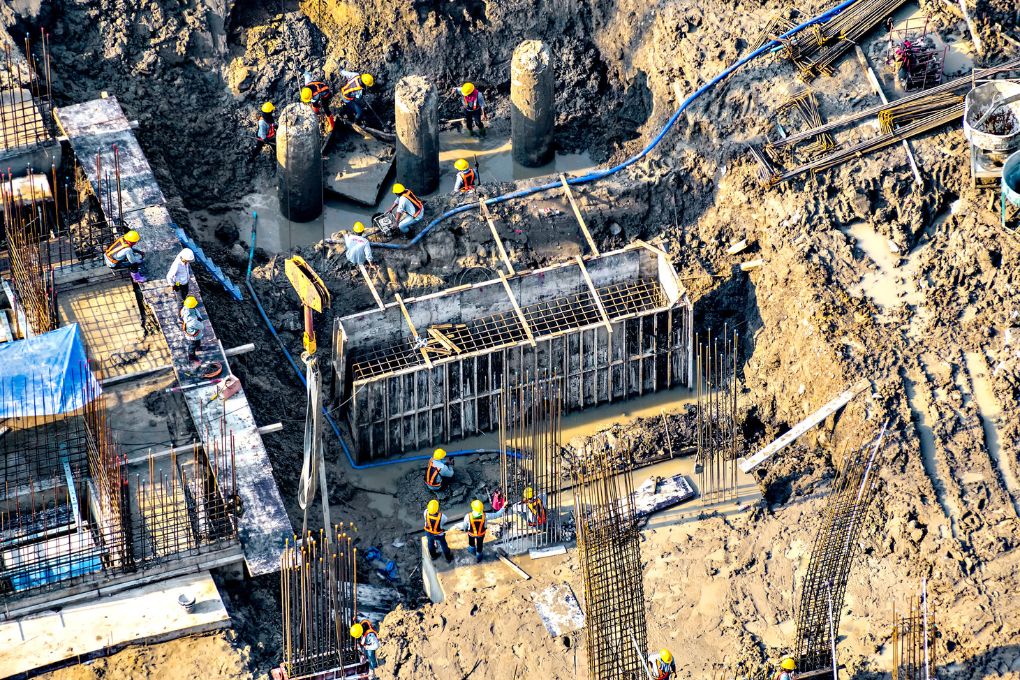Introduction
Foundation construction factors for commercial projects play a crucial role in ensuring success. A strong foundation is vital to the stability, durability, and safety of a structure, and it requires careful planning, expert execution, and adherence to industry standards. In this article, we will explore the essential elements that contribute to a successful foundation construction project, from site preparation to material selection and quality control.
Thorough Site Analysis and Preparation
Before embarking on a foundation construction project, it is crucial to conduct a thorough site analysis. This includes assessing the soil conditions, conducting geotechnical investigations, and identifying any potential challenges or risks. By understanding the site’s characteristics, such as soil type, water table level, and load-bearing capacity, engineers can design the appropriate foundation system that can withstand the forces exerted on it.
Engineering and Design
Proper engineering and design are paramount for a successful foundation construction project. This involves the expertise of structural engineers who analyze the site data and design a foundation system tailored to the specific requirements of the structure. Factors such as the building’s load, anticipated settlement, and seismic activity in the region are taken into account during the design phase. It is essential to engage experienced professionals who can develop accurate and robust foundation plans.
Material Selection
Choosing the right materials for the commercial foundation is crucial to ensure its strength and longevity. Various options are available, including concrete, reinforced concrete, and steel. The selection of materials depends on factors such as structural requirements, soil conditions, and budget constraints. It is vital to consider the durability, resistance to moisture and chemicals, and load-bearing capacity of the chosen materials to guarantee a solid foundation.
Proper Excavation and Footing Construction
The excavation and footing construction processes are critical stages in foundation construction. Excavation must be carried out according to the engineering design, ensuring the correct depth and dimensions. The footings, which distribute the load from the structure to the soil, should be constructed with precision, using proper formwork and reinforcement. Skilled workers and supervision are vital to achieving accurate excavation and footing construction, as even minor errors can compromise the foundation’s integrity.
Adequate Drainage and Waterproofing
Water is one of the biggest enemies of any foundation. Poor drainage can lead to the accumulation of water around the foundation, causing soil erosion, hydrostatic pressure, and potential foundation settlement. Therefore, it is crucial to implement adequate drainage systems, including surface drainage and subsurface drainage, to divert water away from the foundation. Additionally, waterproofing measures such as installing a damp-proof membrane and applying sealants can prevent moisture infiltration, enhancing the foundation’s durability.
Quality Control and Inspections
Regular quality control and inspections are essential throughout the foundation construction process. This ensures that the construction meets the required standards, specifications, and engineering design. Quality control involves monitoring the materials used, verifying proper installation techniques, and conducting tests to assess the strength and stability of the foundation. Inspections should be conducted by qualified professionals to identify any deviations from the design and take corrective measures promptly.
Adherence to Building Codes and Regulations
Compliance with local building codes and regulations is of utmost importance in any construction project, including foundation construction. These codes are established to ensure the safety, structural integrity, and performance of buildings. It is crucial to engage professionals who are well-versed in the applicable codes and regulations and follow them diligently throughout the construction process. Non-compliance can result in legal issues, delays, or even structural failures.
Effective Project Management
Efficient project management is vital for the successful completion of any construction project, and foundation construction is no exception. A well-planned schedule, proper coordination among stakeholders, and effective communication channels are essential to keep the project on track. Regular progress monitoring, timely problem-solving, and resource management contribute to the smooth execution of the foundation construction.
Safety Measures
Safety must be a top priority in any construction project. Foundation construction involves working with heavy machinery, excavation, and potential hazards. Implementing appropriate safety measures, providing proper training to workers, and adhering to safety protocols are crucial to prevent accidents and ensure a safe working environment.
Conclusion
Constructing a successful foundation requires a combination of meticulous planning, expert engineering, quality construction, and strict adherence to standards. Thorough site analysis, proper material selection, and effective project management are key factors that contribute to the foundation’s strength and durability. By prioritizing safety and following building codes and regulations, construction professionals can ensure the success of foundation construction projects.
FAQs for Foundation Construction Factors
How important is site analysis before starting a foundation construction project?
Site analysis is crucial as it helps engineers understand the soil conditions, and potential risks, and design an appropriate foundation system. This will avoid or minimize any commercial foundation repair.
What materials are commonly used in foundation construction?
Common materials used in foundation construction include concrete, reinforced concrete, and steel, chosen based on structural requirements and soil conditions.
Why is drainage important in foundation construction?
Proper drainage helps prevent water accumulation around the foundation, which can lead to soil erosion, hydrostatic pressure, and foundation settlement.
Who is responsible for inspecting foundation construction?
Qualified professionals should conduct inspections at various stages to ensure compliance with engineering design and quality standards.
Why is safety crucial in foundation construction?
Safety measures are essential to prevent accidents and ensure a secure working environment when dealing with heavy machinery and potential hazards.


